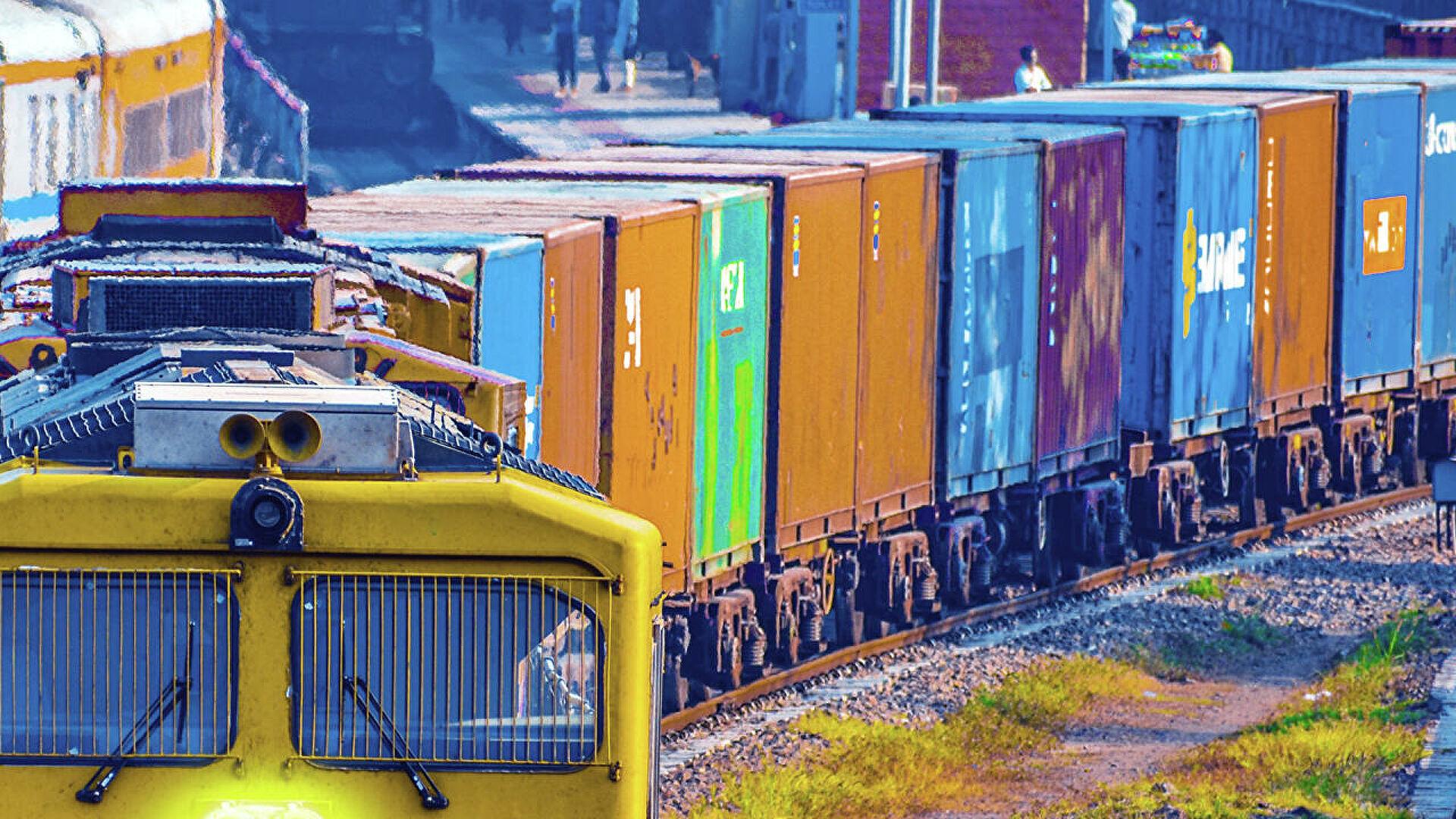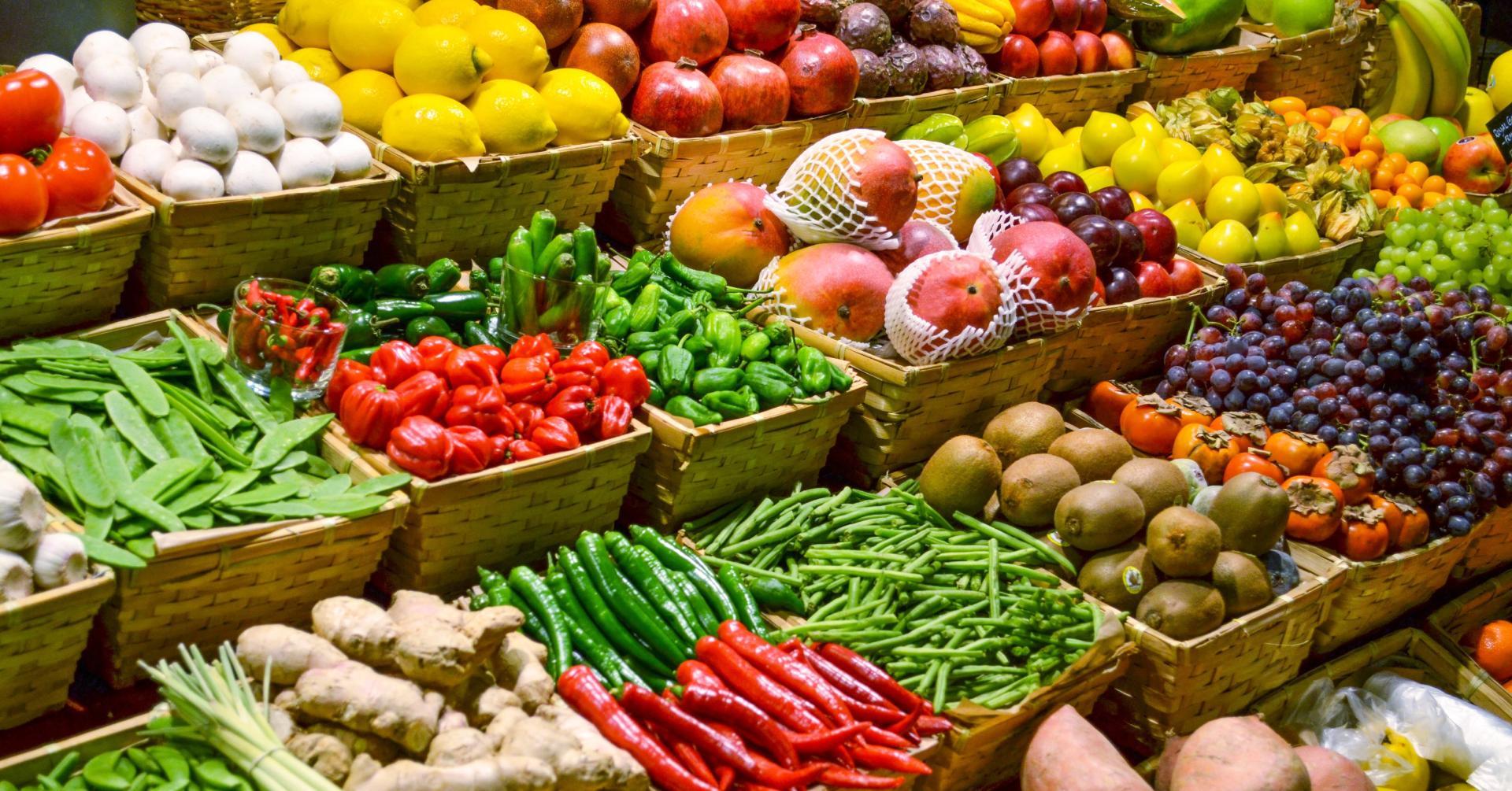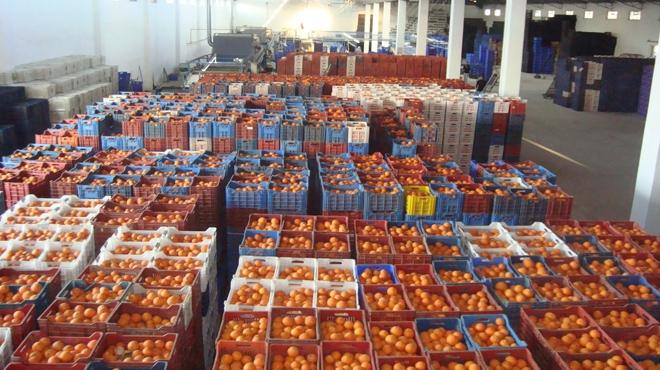Tomato truce: Azerbaijan's sharp growth of agrarian exports Review by Caliber.Az
Since the outbreak of the Russian-Ukrainian war, some experts have expressed concern over the deterioration of Azerbaijan's foreign trade prospects, for example, the threat of reducing exports of fruit and vegetable products to Russia. According to the latest information, the supply of seasonal vegetables, particularly tomatoes, not only did not decrease but significantly increased. The congestion at the border checkpoints has been reduced, quarantine mechanisms have been agreed upon and the transport and logistics component is being optimized. The current very complicated geopolitical situation makes the Russian market more open for external supplies, and, apparently, Azerbaijani agricultural exports will be able to end the year with significant growth.
Supplies of fresh fruits and vegetables to the markets of post-Soviet countries have for many years played the role of a driving force that ensures sustainable growth of production in the dynamically developing agricultural sector of Azerbaijan. This is primarily related to Russia, given that the northern neighbour accounts for about five-sixths of all foreign shipments of Azerbaijani fruits and vegetables. The key place in this segment is taken by tomato exports, which in recent years accounted for about two-thirds of all foreign shipments of agricultural products.
It is not surprising that severe quarantine restrictions imposed by Russia in December 2020 on imports of tomatoes, peppers and apples produced in Azerbaijan (due to the presence of dangerous viral and other diseases) had a very significant impact on the sustainable operation of several thousand greenhouses and other agricultural enterprises of our country. Last year, 140,110 tons of Azerbaijani tomatoes worth more than $157.5 million (96.5 per cent of total exports) were exported to Russia, and due to quarantine restrictions in the neighbouring country, these supplies decreased year-on-year in quantitative terms by 22.1 per cent, and by 20.2 per cent in monetary terms.
In addition, in the first third of 2021 cross-border restrictions were still in effect due to the coronavirus pandemic, and it also affected the Russian-Azerbaijani transport and trade relations, reducing the supply of other types of seasonal fruit and vegetable products from Azerbaijan. The situation improved only in the second half of 2021: The total export of fruits and vegetables from Azerbaijan amounted to 560,000 tons, an increase of 6 per cent. The export was mainly balanced by such types of products as persimmons, grapes, potatoes, peaches, apricots, and in autumn - citrus fruits, etc.
In general, a number of experts believe that if there hadn't been a quarantine crisis around tomato supplies a year ago, Azerbaijan's total agricultural exports to Russia would have been two or perhaps three times higher than achieved at the end of the year.

To overcome this very damaging situation for Azerbaijani farmers, throughout the past year, specialists from Azerbaijan's Food Safety Agency (AFSA) together with their partners from Rosselkhoznadzor conducted a series of difficult negotiations in the format of video conferences and direct meetings. During these meetings, all necessary steps in the phytosanitary sphere were agreed upon to finally overcome the problems encountered. In particular, with the active support of AFSA, effective steps were taken to strengthen phytosanitary control in greenhouses and other farms in the country. These measures stimulated local tomato producers to increase food safety indicators and improve the quality parameters of tomato products to international standards. According to AFSA Chairman Goshgar Tahmazli, 2021 was a very fruitful year for interdepartmental cooperation in the field of detection of virus and bacterial diseases, control over maximum permissible contents of pesticides and fertilizers in "green" production, etc.
As a result, since the end of last year, all controversial points were agreed upon and restrictions on the export of Azerbaijani tomatoes and other green products were lifted. "Currently, there are no restrictions on supplies from our country to Russia and other countries to which Azerbaijan exports tomatoes, apples and other products," Tahmazli said recently.
The fears voiced since the beginning of the Ukrainian conflict that the Russian market will shrink and the demand for Azerbaijani fresh vegetables will sharply decrease due to the sanctions and the decline in living standards in Russia are also groundless. On the contrary, the opposite situation is observed today.
Thus, according to the data for January-March 2022, domestic producers exported tomatoes for a total amount of nearly $39 million with value growth of 74.4 per cent compared to the same period last year. As in all previous years, almost all the volume of Azerbaijani tomato supplies fell to the local Russian market, and here the growth rate year-on-year reached 84 per cent in monetary terms.

And it is likely that at the end of the year the volume of supply of not only tomatoes but also a broader range of Azerbaijani agricultural products to Russia and the CIS markets will only grow. This trend was observed in the first two months of this year, and according to statistics, the total export of early vegetables in monetary terms has increased by 1.6 times, fruit - by almost 22 per cent, and the supply of potatoes increased by 38.2 per cent.
Such positive dynamics are explained by a number of objective factors. First, against the background of surging imported inflation and rising food prices in almost all post-Soviet countries, the established scale and ratio of prices changed. Since the beginning of the year not only cereals, meat and dairy products, sugar, vegetable and animal oil have become more expensive, but also almost all types of fruits and vegetables have risen dramatically. This is due to sharply increased transportation costs, warehousing costs and logistics, which in 2021 primarily affected the supply of fruit and vegetable products (originally cheap), supplied from South America, Southeast Asia, Indochina, Africa, etc. Moreover, amid the anti-Russian economic sanctions and the practical prohibition on servicing Russian vessels in international ports, the withdrawal of the world's leading forwarders from the Russian market, these processes are most acutely felt today both in Russia and its closest partners in the Eurasian Economic Union (EAEU) due to the strong dependence of the latter on common transit schemes. At the same time, taking into account the triple increase in prices for nitrogen and phosphate fertilizers in the world markets, the cost of production of the same tomatoes, cucumbers, peppers and fresh potatoes has increased further in non-CIS countries. In this regard, Azerbaijan has additional advantages: the country uses its own cheaper gas to supply greenhouses, and farmers' demand for nitrogen fertilizers is satisfied by the local urea as it is sold in the domestic market several times cheaper than world prices. In the emerging circumstances, even relatively more expensive vegetables and fruits (in the recent past) from the same Azerbaijan and Uzbekistan, in fact, are equal in price to the products of distant producers, and taking into account the short shipment distance, they often cost less.

All these factors together form a favourable environment for domestic agricultural producers, especially in the Russian market. "There is a good dynamics of cooperation in agriculture between Azerbaijan and Russia. Since the beginning of the year, the volume of Azerbaijani fruits and vegetables has increased, and the republic is among the top 10 exporters of agricultural products to Russia," Deputy Prime Minister Shahin Mustafayev said recently at a meeting of the Azerbaijan-Russian intergovernmental commission on economic cooperation.
Moreover, due to the latest, extremely negative geopolitical and economic developments in the region, Russia's Rosselkhoznadzor has already lifted a significant part of restrictions on the import of vegetables and fruits from nine post-Soviet and other countries, including Azerbaijan, as well as Turkey, Egypt, China, Bangladesh, to the Russian Federation since March 5. In turn, Baku and Moscow have reached an agreement on the rapid capacity growth of customs border crossing points, which is extremely important today, taking into account the plans to multiply the exchange of "green" and other agrarian products. Since the end of last year, the first test train within the project "Agroexpress" was launched from Azerbaijan to Russia for the transhipment of agricultural products with the subsequent loading of cars with Russian products in the reverse direction. In the future it is planned to organize the monthly movement of two mixed trains: the new logistics mechanism significantly simplifies the mutual supply of domestic fresh fruit and vegetable products to the Russian market and reciprocal supply of cereals, flour, vegetable oils, confectionery products, etc. from Russia. According to the Russian Export Center (REC), the volume of supplies of Russian agricultural products to Azerbaijan within the framework of "Agroexpress" logistics project may reach 100,000 tons by 2025.
All these measures will also contribute to the expansion of bilateral food trade, removing long-standing problems, and making logistics cheaper and easier.








